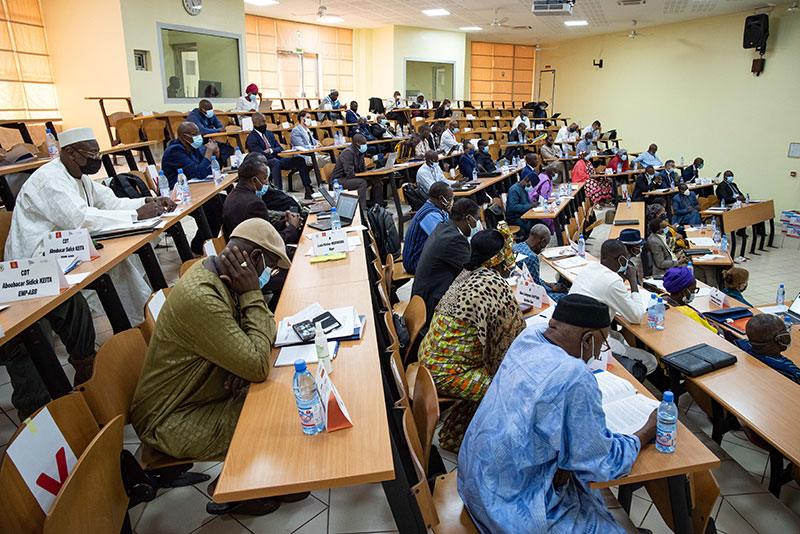 The regional conference on best practices in resource management in the defence and security sector, held in Bamako on 17 and 18 March 2021, and involving the Group of Five for the Sahel (G5) , was a resounding success on a number of fronts. The conference presented an opportunity for participants to discuss wide-ranging resource management topics and adjust the sector's best practices accordingly. The preliminary recommendations outlined during the discussions will promote information exchange and help participants from every State to adapt their practices. The relevant stakeholders will subsequently be able to set about prioritising courses of action, and introduce support measures for implementation.
The regional conference on best practices in resource management in the defence and security sector, held in Bamako on 17 and 18 March 2021, and involving the Group of Five for the Sahel (G5) , was a resounding success on a number of fronts. The conference presented an opportunity for participants to discuss wide-ranging resource management topics and adjust the sector's best practices accordingly. The preliminary recommendations outlined during the discussions will promote information exchange and help participants from every State to adapt their practices. The relevant stakeholders will subsequently be able to set about prioritising courses of action, and introduce support measures for implementation.
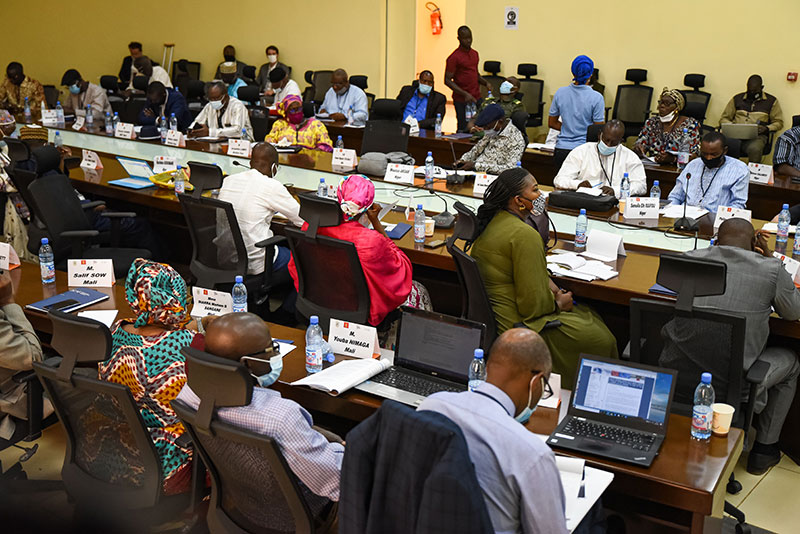
The overall objective of the conference was to engage key players from Burkina Faso, Chad, Mali, Mauritania, and Niger, as well as regional and international stakeholders, in a sustained dialogue and to extensively promote best practices in transparency, viability and accountability across the sector.
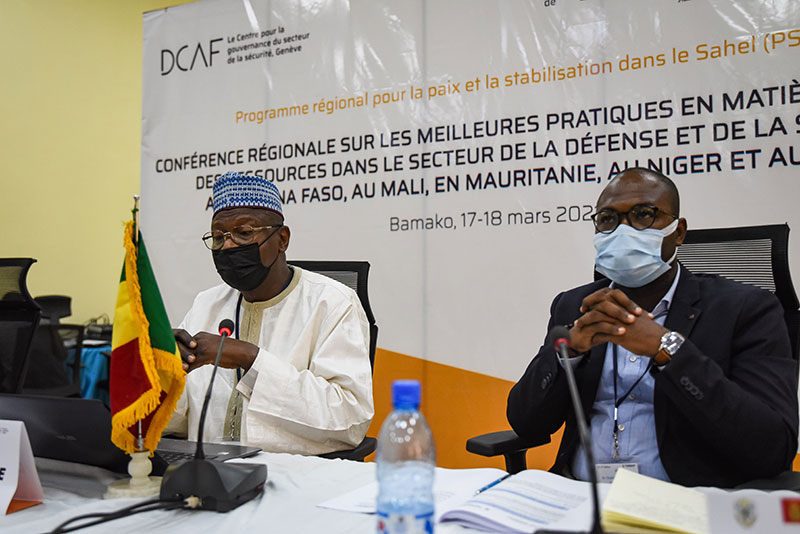
Three specific objectives were met:
1. An assessment of the governance of security sector resources in the Sahel (stakeholders, functions, principles, etc.) was conducted
Throughout the various sessions, participants reviewed laws and regulations pertaining to security and defence sector resource management. Comprehensive legislative and regulatory mechanisms to enshrine reasonably transparent resource management practices do exist, however, for various reasons, these mechanisms become less and less effective since they are improperly or seldom enforced.
Participants identified the need for greater transparency in the reporting and communication procedures of armed forces. It was also noted that the inspectorates of armed forces and security services do not have the autonomy they need to effectively perform their tasks. Furthermore, participants highlighted the major security challenges facing Sahel States such as corruption, accountability, and access to justice. Despite the existence of legal instruments, the defence and security sector is affected by the same shortcomings — one of which being the access to classified "defence secrecy" documentation and information.
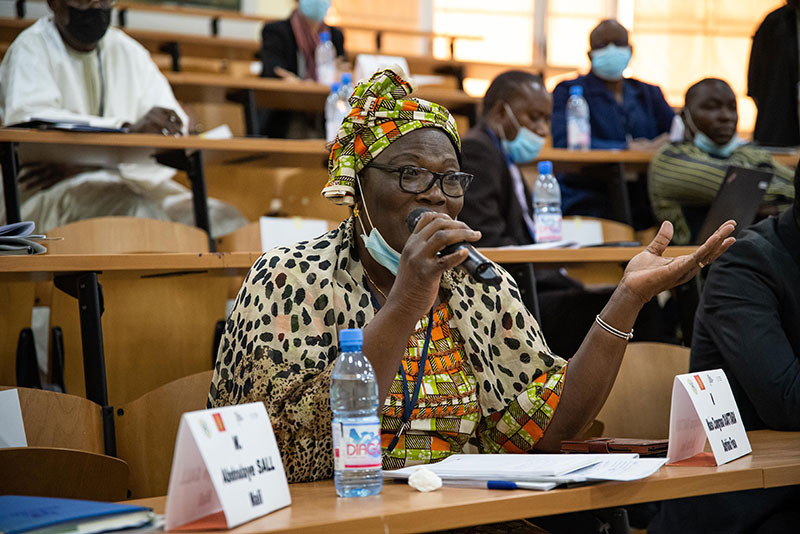
2. Best practices in the management and oversight of resources were identified and promoted
Participants noted that corruption undermines democracy. They reviewed best practices with a view to promoting and encouraging transparency and accountability, such as:
- the adoption and implementation of specific procedure manuals for the procurement of security equipment to boost transparency and ultimately improve operational efficiency
- online access to information about the use of appropriations from the State general budget by the Ministry of Finance, including the budgets of the defence and security sector
- the creation of anti-corruption platforms; enhanced cooperation between supervisory bodies and other national and international bodies based on anti-corruption conventions; and the provision of continuous anti-corruption training courses with a view to increasing the awareness of defence and security forces (DSF) about the risks associated with corruption in the sector — ultimately to guarantee greater access to sensitive documents.
3. Recommendations to improve transparency and accountability were formulated
In view of the need for greater transparency, participants formulated specific recommendations to develop the practices of DSFs. They focused on crime prevention, greater oversight, the efficiency of the judicial system, the role of parliaments, and the importance of civil society.
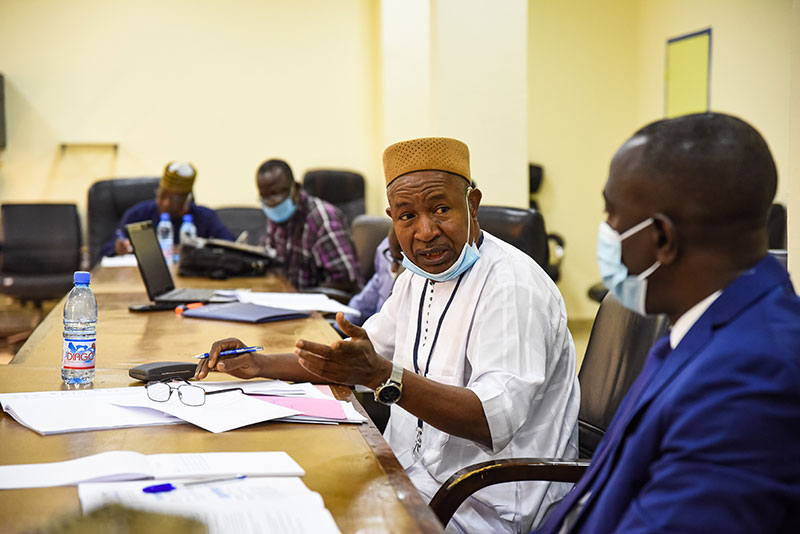
The success of this final objective will depend on the production of the following two documents:
- A simple and easy-to-understand summary which includes a structured analysis of the context of the conference and outlines the observations and recommendations brought to light during the two-day event. Before the finishing touches are added, the report will be distributed to all participants and ministries so they’re able to clearly understand its content and adapt it to their particular national context
- A technical and selective document which outlines the preliminary recommendations will highlight the sequence of measures to be introduced, how they are to be coordinated, and who is responsible for their application. DCAF will help to implement structural reforms in Burkina Faso, Chad, Mali, Mauritania, and Niger by cooperating with the corresponding partners according to a shared agenda
For more information:
• Download the information note and get the detailed agenda: English - French
• Download the summary in French
